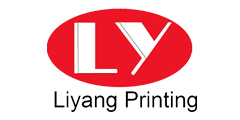In recent years, a large number of spot printings have been used in the printing of paper packaging products. The characteristics of spot color printing are: a large area of color blocks in the field is dazzling, and the shelf display effect is good; the color difference due to dot overprinting and dot distortion is reduced, the color is stable, and the identification is easy. Below with the industry peers to discuss the application of color ink and color control techniques.
First, the detection of spot colors
At present, most of the packaging and printing companies in China are lagging behind in the measurement and control of spot colors. Most of them rely on the experience of the workers' masters to deploy spot color inks. The disadvantage of this is that the ratio of spot ink is not precise enough, and the deployment time is long, subjective factors have a great influence. Some powerful large packaging and printing companies have adopted a spot color ink system to manage them.
Spot color ink system consists of computer, color matching software, spectrophotometer, analytical balance, even ink meter, ink exhibition instrument. Using this system, the parameters of paper and ink frequently used by the company are included in the database, color matching software is used to perform automatic color matching of the customer-supplied spot colors, and the CIE Lab value, density value, and ΔE are measured using a spectrophotometer so that it can be realized. Spot color ink data management.
Currently, the common spectrophotometers on the market are American X-Rite and Swiss Gretag. Different spectrophotometers use different calculation methods to measure the color difference, which will bring different tolerances.
The color space described by the color tolerance is divided into three categories: box tolerance (CIE Lab), fan tolerance (CIE LCH), and spherical tolerance (CMC 2:1). The smaller the volume of the color difference space region described by the tolerance, the higher the accuracy of the color.
The color difference results calculated according to different tolerance methods are somewhat different from the human eye's evaluation of color. The accuracy of the box-like tolerance is 75%, the accuracy of the fan-shaped tolerance is 85%, and the accuracy of the spherical tolerance is 95%. It can be seen that different spectrophotometers use different tolerance methods, and the accuracy of color description is also different.
It can be seen that the boxed tolerance (CIE Lab) is used in the national standard, and its color description has an accuracy of 75%. In other words, in actual production, even if the △E value measured using a spectrophotometer is zero, there is still a 25% deviation in color. Because the human eye is more sensitive to blue, this difference is most evident in blue. For those customers who have higher print requirements than national standards, this small deviation must be overcome. Therefore, in the preparation of spot color inks, a combination of human eye observation and measurement with a spectrophotometer is generally used to solve this problem.
Various factors, such as paper properties, surface finishing of prints, diluting agent, dry retreat density, and system differences, will affect the color control of spot color printing.
Second, the factors that affect the color difference of spot colors
In the printing process, there are many factors that cause spot color ink production chromatic aberration, and these factors are discussed separately below.
1. Effect of paper on color
The effect of paper on ink color is mainly reflected in three aspects.
(1) Paper whiteness: Paper with a different degree of whiteness (or a certain color) has a different influence on the color of the printing ink layer. For the same type of whiteboard paper, the whiteness is different, and the color difference of the printing ink layer is mainly reflected in the number of black ink components in the spot color ink, especially for the colors whose lightness is above 70, and the effect is particularly obvious, resulting in spot color ink. The ratio varies greatly. Therefore, in the actual production, the paper with the same whiteness should be printed as much as possible to reduce the influence of the whiteness of the paper on the printing color.
(2) Absorption: When the same ink is printed under the same conditions on paper with different absorbency, there will be different printing gloss. The structure of the paper determines that there are irregularities and voids formed by plant fibers on the surface of the paper. In order to obtain good uniformity and smoothness of the paper surface, it is generally necessary to coat the surface of the paper with a coating of different thickness. The nature and thickness of the coating determine the absorbability of the ink on the surface of the paper. With different absorptive capacities, it is necessary to make the colors of printing ink layers different. Compared to coated paper, non-coated paper, black ink layer will appear dark, dull, and the color ink layer will drift, the color of the mix of cyan ink and magenta ink show the most obvious.
(3) Gloss and smoothness: The gloss of prints depends on the gloss and smoothness of the paper. The surface of the printing paper is a semi-glossy surface, especially coated paper.
In color prints, about 4% of the light is reflected when the light strikes the surface of the paper at an incident angle of 45°. This is the light reflected from the surface of the first layer. The rest of the incident light passes through the ink layer, is selectively absorbed by the ink, and is then reflected by the ink layer, enters the human eye, and is perceived by the human eye. This is the color we observe. If the gloss and smoothness of the paper is high, the reflected light on the surface of the first layer is a specular reflection and it is difficult to enter human eyes. The color observed at this time is basically the color reflected by the ink layer. If the surface of the paper is rough and the gloss is low, the diffused reflection will occur on the surface of the first layer. At this time, the color we see is the mixed color of the main color light and the light reflected from the surface of the first layer. Since there is a white light component on the inside, the saturation of the main color light is reduced. Therefore, when people observe the printed product, the color becomes lighter, and the density value decreases and the lightness increases when measured with a densitometer.
2. Effect of surface treatment on color
The surface treatment methods of packaging products mainly include coating (bright film, matt film), coating (bright oil, matt oil, UV varnish) and so on. After the surface treatment of the printed products, there will be varying degrees of hue and color density changes. These changes are divided into physical changes and chemical changes. The physical change is mainly reflected in the specular reflection and diffuse reflection on the surface of the product, which has a certain influence on the color density. When covering the bright film, cover light oil and UV oil, the color density increases; when covering the matt film, cover the matte oil, the color density decreases. The chemical change mainly comes from the plastic film, UV base oil, and various organic solvents contained in the UV oil, which will change the color of the printing ink layer. (to be continued)













